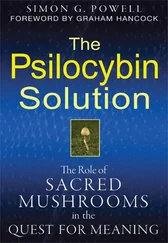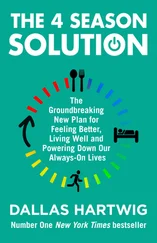“Well over six thousand. You still haven’t really told me what happened.”
She paused for a moment to formulate her words before surprising him. “I was hoping you could tell me what happened.”
“What do you mean?”
“Milton, don’t be disingenuous. It was hard enough for me to say it. I don’t want to repeat it.”
Pierce took a deep breath, using the moment to organize his thoughts. “All right. You obviously didn’t lose many to ZooCity.”
She nodded to indicate her concurrence.
“That leaves Madison or death as the only other main choices. From the time we initially formed our enclaves, Madison has picked up many of your people. From the beginning it has been a fairly steady stream. The number we’ve lost to you has been negligible, especially if you consider how many of those changed their minds within a month or so and returned.”
“Why do you think that was, Milton?”
“I don’t have to guess. With our residents who told us they were leaving, we did an exit interview whenever they agreed. We also did a formal interview when they returned. Of the few who left, their reason was generally an emotional reaction to what they felt had been harsh treatment on our part.”
“And why did they come back to you?”
“Overwhelmingly, the reason they gave was that, although in Madison they became occasionally irritated by the standards and expectations imposed upon them, they found that they could not tolerate the complete absence of any standards or expectations they encountered at Walden.”
“That’s not….” Mildred halted in mid-sentence. “Go on.”
“We also interviewed those who started out at Walden and relocated to us. There was, again, a consistent message. The recurring theme in their answers was a feeling of frustration, of pointlessness over there.”
“Pointlessness?”
“Do you remember a behavioral study performed many years ago where they took a group of college students who badly needed money, and paid them quite well? I think it was three times the current minimum wage. All they had to do was spend every morning out in a field digging holes. They would break for lunch and, after they had eaten, their afternoon was spent filling up the same holes.”
“Vaguely.”
“Within ten days they had all quit, despite the fact that they needed the income. When asked why, the reason given by almost all of the students was the same. They couldn’t stand doing something meaningless…pointless.”
“How does that translate to Madison and Walden?”
“That was my struggle at the beginning. As I said earlier, everything was provided for us. All of the normal yardsticks for success, for achievement, for distinguishing oneself were not viable here. For you, it was perfect. You created an environment of harmony and equality, an egalitarian Shangri-La. After some thrashing about and some false starts, we created the Madison you see now.”
“You created boot camp.” Her tone was gentle, without a hint of ire.
With a grin, he acknowledged her comment, “In a sense, yes. We had to find a way to give people something to work toward, a way to be recognized and acknowledged. We began small. Creating a basic education curriculum, we opened our first school. Attendance was mandatory. Achievement was tracked and published. Degrees, and their accompanying status, were earned and granted. We also created work for people to do. Frankly, much of it was busy work, although we made sure not to fall into the trap of digging and refilling holes. We instituted a political structure with elected representatives for each block of residential units, as well as a security team with ranks.
“In short, hierarchies began to form and crystallize. The community had leaders, second- and third-tier leaders, work supervisors, scholars…the list goes on. And with each of the distinctions came privileges, some of them amorphous, some quite obvious. We randomly selected secondary corridors within Madison and made them accessible only to the higher-tier citizens. They got preferential seating at the common-area dining rooms and at any meetings or events. Things like that.”
“You created haves and have-nots.”
“We did, essentially out of thin air. But what we actually created were goals. Individuals on a lower tier of the hierarchy, who wanted to be a part of the group receiving the best seats, worked harder until they reached their goal. We provided challenges. Almost all of our residents accepted the challenges.”
“And those who did not?”
“We found, within the concept, a method for taking things a step further, a way to utilize our structure to create a gentle form of punishment. If we have a citizen who does not participate, does not buy into our social structure…who is, essentially, a slacker…then he or she is assigned to do the laundry for one or more of the others, or, perhaps, clean their quarters.”
“You make the person a servant?”
“We do. And before you say anything else, in almost all cases, it works. The people soon become functional, participating members of the group, and those tasks are eliminated. We actually have a ceremony for them as they come out of subservience. The entire population shows up to honor, welcome, and applaud them for making the transition. It is always quite an emotional moment for them to be accepted and embraced enthusiastically by the others.”
“But why make them servants? Isn’t that humiliating for them?”
“Of course it is. It’s supposed to be humiliating. In addition to the unpleasant duties, they must also wear a bright red shirt at all times, denoting their status.”
“Supposed to be humiliating? Why? It seems as if it would be damaging to them.”
“It is the humiliation that shocks them out of their lethargy. It is the impetus which drives them to make the changes in their lives needed to escape from it. Without it, there is no motivation. Mildred, we are back to the issue of human nature. It is normal to be ashamed in a situation such as I’ve described. But it is also normal to want to end the shame, to escape from it, to rise above it. Remember when our father left our mother and she went on welfare and food stamps?”
“Of course, I do. I’ll never forget that time. It was horrible!”
“You’re right. It was. Our mother came back from the store completely humiliated by the looks and even the occasional comments from the others in the cashier’s line when she paid with food stamps. The same was true when she cashed the welfare check.”
“It wasn’t right! She was in that position through no fault of her own.”
“I know. I agree. I think much of the way we both are today is a result of watching her come home and cry during those times. But you and I learned very different lessons from that experience. You were mortified and vowed that society should never put any citizen through that again. I realized that it was the shame which caused her to buckle down and work very hard to make certain that she never had to ask for public assistance again.”
Mildred listened to his words, saying nothing.
“The culture moved in your direction. Now that times have changed, now that the stigma is removed and the outward evidence of public assistance is hidden, how many people, who are standing in that cashier’s line and are allowed to pay with a debit card instead of the conspicuous food stamps, are still on assistance because they don’t feel the shame our mother felt?
“The shame, the social ostracism, is necessary. Without it, you not only lose the motivation to escape from the assistance, you begin to feel that you are entitled to receive it. I’ll be honest, the concept did not have a one-hundred-percent success rate. There were a few on whom it failed.”
Читать дальше












